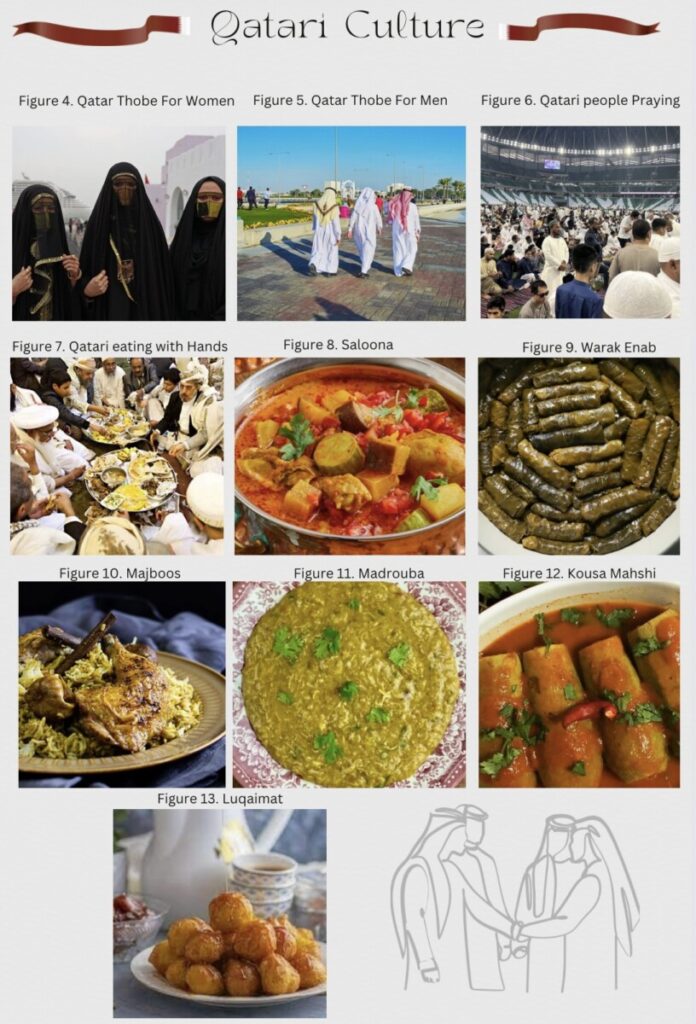Qatar is a multicultural state, it is a rich tapestry woven with elements of tradition, heritage, and contemporary influences. The country takes pride in its Bedouin customs, in various aspects of daily life such as religious references and justifications and Qatar’s culture, family and privacy hold considerable importance (Al-Mohannadi , 2022). Social interactions between men and women are kept separate or limited. Arabic serves as the official language in Qatar (CIA, 2020). Traditional practices, such as hospitality known as ‘Diwan‘, continue to play a huge role in Qatari society, where welcoming guests with generosity and warmth remains a cherished value.
Qatar preserves its cultural identity through the appreciation of art, craftsmanship, and oral traditions, passing down folklore and tales that celebrate its history. Qatar celebrates Islamic festivities like Ramadan, Eid al-Fitr, and Eid al-Adha, alongside secular celebrations like Independence Day and the commemoration of the emir’s accession to power (Crystal, 2023). Over the past twenty years, Qatar’s government has funded billions of US dollars towards modernizing its infrastructure and promoting a distinctive cultural identity (Eggeling, 2022). Qatar nation’s development hasn’t eclipsed its commitment to preserving heritage, showcased through initiatives like the Katara Cultural Village, museums, and heritage sites (Lazell, 2023). Qatar’s cultural landscape reflects a harmonious coexistence of modernity and tradition.



